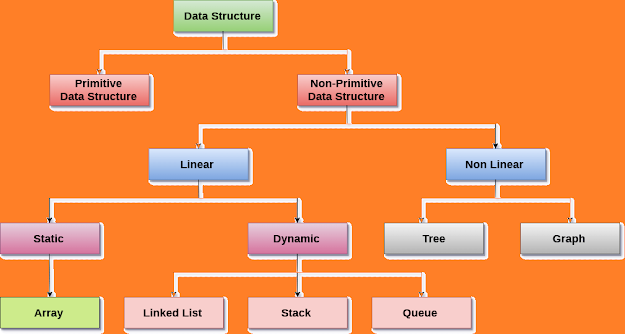DATA-TYPES
A datatype acts as an attribute of a data element which lets the compiler/interpreter know about the intentions of the programmer while using data elements.
there are three types of data types categorized :
- Primitive types: the primitive types are datatypes provided by many programming languages for user's ease, some of them are int, float, char, double, boolean. Also, though many languages offer them, bits allocation for each primitive data type depends on different languages, the compiler, and the operating system.
- Composite data types: Composite data types can be derived from an arbitrary number of primitive data types and composite data inputs. Composite data types are called structs.
- Abstract data types
In computer science, data structures are a particular and organizational way for proper organization and storage of data which enables efficient access and modification of the data.
More precisely, a data structure is a collection of data values, the relationships among them, and the functions or operations implemented on the data items.
To develop a program of an algorithm we should select an appropriate data structure for that algorithm. Therefore, the data structure is represented as:
Algorithm + Data structure = Program
TYPES OF DATA-STRUCTURES:
- Linear Data Structures(LDS): Elements of these data structures are accessed in a sequential manner, but it is not compulsory in it to store all elements in sequential order.







0 Comments
Doubts? Please let our team know So that we can serve you better.